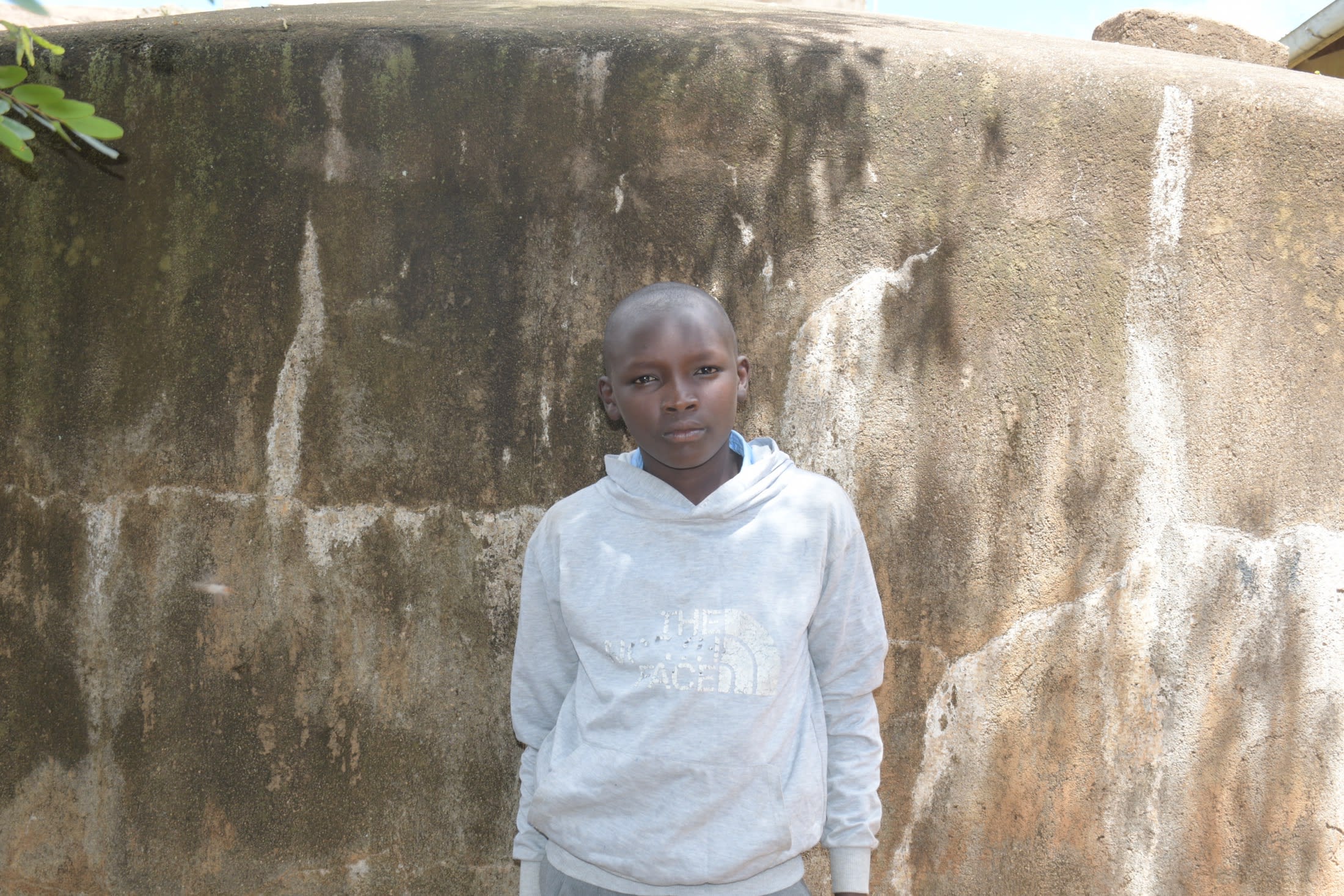The 228 students and staff at Mumbuni Primary School struggle to access sufficient water. Every day is a battle to find water, especially water they can drink without getting sick.

"Getting clean water to drink is difficult, and I am often forced to bring mine from home. But sometimes I forget, and I have to purchase a liter or two from the nearby trading center, which is quite expensive," said 59-year-old head teacher Boniface Makonge (shown below).
Mr. Makonge continued, "Running school programs like meals, hygiene, or construction is difficult because the water is scarce. The school timetable is often disrupted because either teachers or pupils fail to take (eat) their meals on time, and we have to reschedule. This disrupts the learning cycle, and students have performed dismally. My pupils also find it hard to focus in class due to thirst because the little available water is salty."

The school relies on a borehole well that is far away and presents challenges. The water is piped to a storage tank near the school, but it is salty and not usable as drinking water. And without the benefit of clean water access, students drain a lot of their time and energy hauling water from wherever they can find it to quench their thirst. It is a practice that is putting them all at risk.
"We often develop stomach issues, like when we resumed from the recent mid-term break, and I had a stomachache and had to seek treatment at the nearby dispensary. We also carry water from home in one- or two-liter jerry cans when there is no water from the borehole. This exercise is time-consuming and exhausting," said 13-year-old Moses K. (shown below).

"Water from the borehole is unreliable since [the water point] is shared with the community and dries up during peak drought periods. The pipes are also washed away during the short rains, thus reducing [the] water supply. The water is also salty, making it unsuitable for drinking or cooking. It is also contaminated and often not treated, leading to exposure to sicknesses such as typhoid or amoeba. The little available water cannot satisfy the entire school population," said field officer Alex Koech.
The installation of a large rainwater tank will enable students like Moses and teachers like Mr. Makonge to have access to clean, treated water to drink so they can focus on learning and building a brighter future again.
The Proposed Solution, Determined Together...
At The Water Project, everyone has a part in conversations and solutions. We operate in transparency, believing it benefits everyone. We expect reliability from one another as well as our water solutions. Everyone involved makes this possible through hard work and dedication.
In a joint discovery process, community members determine their most advantageous water solution alongside our technical experts. Read more specifics about this solution on the What We're Building tab of this project page. Then, community members lend their support by collecting needed construction materials (sometimes for months ahead of time!), providing labor alongside our artisans, sheltering and feeding the builders, and supplying additional resources.
Water Access for Everyone
This water project is one piece in a large puzzle. In Kenya, Sierra Leone, and Uganda, we’re working toward complete coverage of reliable, maintained water sources that guarantee public access now and in the future within a 30-minute round trip for each community, household, school, and health center. One day, we hope to report that this has been achieved!
Training on Health, Hygiene & More
With the community’s input, we've identified topics where training will increase positive health outcomes at personal, household, and community levels. We’ll coordinate with them to find the best training date. Some examples of what we train communities on are:
- Improved hygiene, health, and sanitation habits
- Safe water handling, storage & treatment
- Disease prevention and proper handwashing
- Income-generation
- Community leadership, governance, & election of a water committee
- Operation and maintenance of the water point





 Rainwater Catchment
Rainwater Catchment
 Rehabilitation Project
Rehabilitation Project

















 We delivered three new handwashing stations in time for training. Each new station has three taps so nine students can wash their hands simultaneously.
We delivered three new handwashing stations in time for training. Each new station has three taps so nine students can wash their hands simultaneously.










